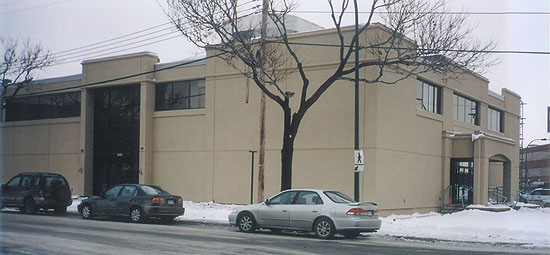By Mumtaz Rehman
December 18, 2004
![]()
 |
| Contents |
| 1.0 Institution | |
| 2.0 History | |
| 3.0 Organization | |
| 4.0 Activities |
| 1.0 Institution |
Introduction[1]
The Ismailis constitute the second largest Shia community after the Twelvers (Ithna-Ashariyyah) in the Muslim world, and are scattered in more than twenty countries of Asia, Africa, Europe and America. The Ismailis follow the Seven Imams, and are called, the Seveners (Sab’iyyah), starting with Ali ibn Abi Talib, (the son-in-law of the Prophet Muhammad, and the fourth Caliph), being the first Imam succeeding the Prophet.[2]
The Ismailis have had a long and eventful history. During the tenth century, they founded the first caliphate under the Fatimid caliph-Imams in 935. They made important contributions to Islamic thought and culture. The Ismaili caliphate collapsed under the onslaught of Mongols in 1258. Thereafter the Ismailis never regained any political prominence and survived as a minor branch of Shia Muslim community. By the second half of the eighteenth century, the spiritual leaders came out of obscurity and actively participated in political events in Iran and, then, in British India.
Because of political developments in Iran, the Ismailis’ 46th Imam, Agha Hasan Ali Shah, migrated to the Indian subcontinent. He was the first Imam to bear the title of Aga Khan. He settled in Bombay in 1848 where he established his headquarters. This move helped the community in India gain a greater sense of confidence and identity as Shia Ismaili Muslims, and laid the foundations for its social work and progress. It launched an era of regular contacts between the Imam and widely dispersed followers from as far as Kashgar in China, Bokhara in Central Asia, all parts of Iran and the Middle East. In the second half of the 19th and early 20th centuries, Ismailis from Indian subcontinent migrated to East Africa in large numbers.
1For bibliographic references, see “Selected Bibliography” under “Sects” in Dr. Sajida Alvi’s chapter, “Introduction to Islam and Islamic Tradition : An Overview.”
2For details, see this author’s “Main sects of Islam” in “Doctrines and Beliefs of the Majority, and Islamic Sites in Montreal. ”
| 2.0 History |
Students at McGill University started to arrive in mid-sixties. Most Ismailis arrived in Quebec and Canada in the mid-seventies from Uganda (fleeing Idi Amin’s regime), East Africa and Franco-phones from West and Central Africa, and Madagascar. In the mid-nineties, people arrived from Central Asia. The date of the first official organization in Montreal is 1972 when a group of students from Uganda were meeting on Fridays in then the Students Union Building at McGill University. Besides the Jamatkhana in TMR, there are Jamatkhanas in Brossard, Laval, Granby, Sherbrooke, Quebec City and Maritimes.
| 3.0 Organization |
The Shia Imami Ismaili constitution, established by His Highness (HH), applies to Shia Imami Ismaili Muslims worldwide. The leadership is recommended by the local national organization and appointed by HH. Some Boards and Portfolios are appointed locally.
In general, the executive comprises of:
- President
- Hon. Secretary
- Communication Coordinator
- Member for Legal Matters
- Member for Arts and Culture
- Member for Settlement Matters
- Member for Women’s Development
- Member for External Relations
In addition, there are appointed Chairpersons for Boards, which include:
- Economic Planning
- Social Services
- Health
- Youth and Sports
- Education
| 4.0 Activities |
Daily prayers
Eid Celebrations
Milad-Un-Nabi Program
- Ismaili Muslims celebrate the birthday of Prophet Muhammad (pbuh) in all major cities in Canada. Generally they have a guest speaker (a known scholar in Islam) and attendance is by invitation by the local management. It is held in an impressive hall. The address by the guest speaker is followed by a question/answer session and refreshments.
Special Activities:
- Classes for children (Elementary level) in religious education.
- Religious Seminars for adults and post-secondary level students.
- Seminars on various socio-economic topics (twice monthly)
- Skills enhancement program (Computer, French language)
- Counseling for placement on the job market
- Tutorial assistance for students
- Big brother/Big sister programs
- Career planning workshops
- Mini-School – six -week program for newly - arrived immigrants
- Summer Camps for youth
- Academic Achievement and Recognition program every year
- Partnership Walk (Organized by the Aga Khan Foundation with the help of Ismaili volunteers to raise awareness and funds for the developing world. This Walk is organized across Canada, in 10 major cities, every year, for the last 20 years. Funds raised are matched by CIDA)
- Publication of a quarterly National magazine ‘Ismaili Canada’
- Prepare and publish leaflets on different activities.